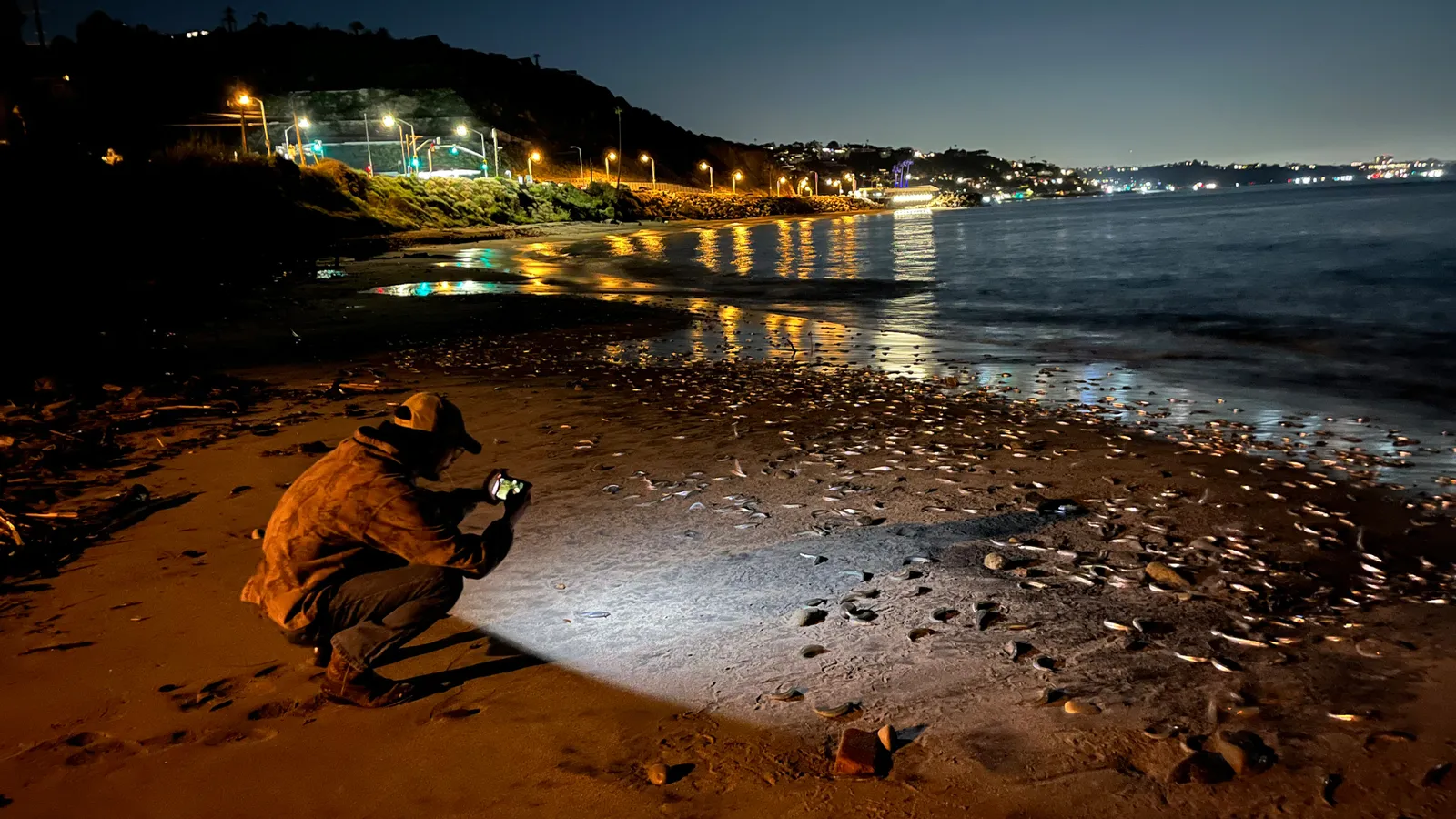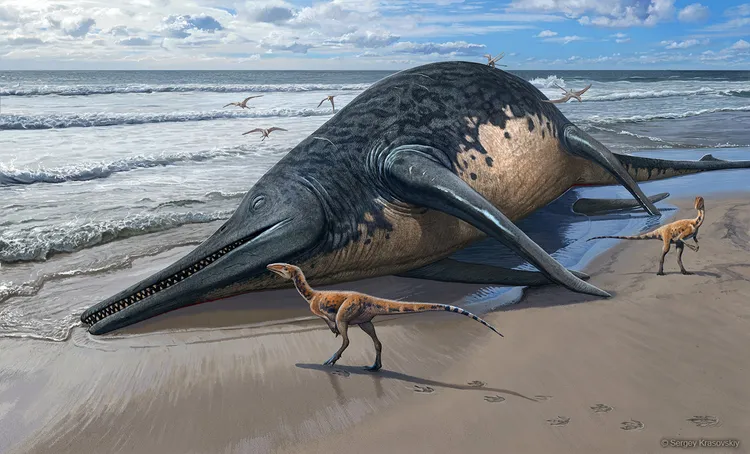Scientists at the 2020 Ocean Sciences Meeting have warned that warming ocean temperatures and acidic water could destroy nearly all the existing coral reef habitats, resulting in total extinction by the year 2100.
The meeting was held on monad 17 February in San Diego.
Renee Setter, a researcher at the University of Hawaii Manoa said in a press release that:
‘by 2100, it’s looking quite grim,’
Scientists say between 70 and 90% of the world’s coral reefs are expected to disappear within the next 20 years due to climate change and pollution.
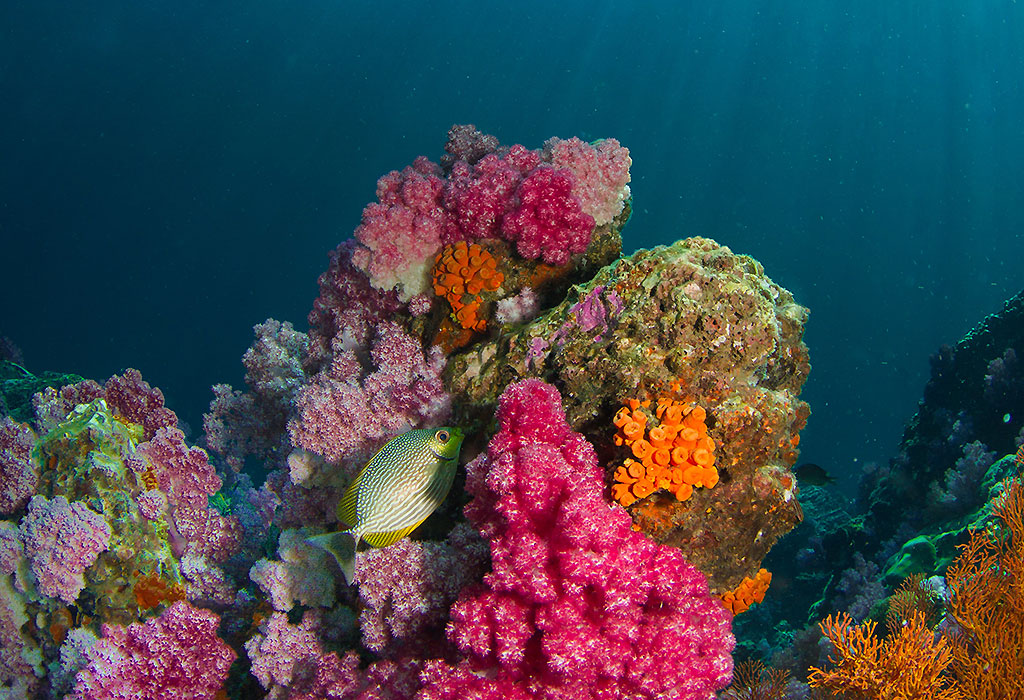
Various attempts to slow this decline have been attempted such as growing coral in labs and transplanting live coral to dying reefs, in hopes of returning them to a healthy state. However, researchers fear that these efforts won’t be enough to turn the tide.
Due to increasing sea surface temperature and acidity, ‘new research mapping where such restoration efforts would be most successful over the coming decades finds that by 2100, few to zero suitable coral habitats will remain,’ the initial findings suggest.
A few viable sites for coral reef restoration have been identified, off the coast of Baja California and the Red Sea, but even these aren’t perfect because of their proximity to rivers.
Pollution causes much harm to ocean creatures, however new research indicates that corals are more at risk from ’emission-driven changes in their environment’.
Setter said:
‘Trying to clean up the beaches is great and trying to combat pollution is fantastic. We need to continue those efforts, but at the end of the day, fighting climate change is really what we need to be advocating for in order to protect corals and avoid compounded stressors.’
STAY UPDATED
Join our community of keen travellers, wildlife enthusiasts and adventure seekers.
Deforestation Forces Animals To Eat Infected Bat Poo in Uganda
April 23, 2024
The Unseen Dangers of Deforestation: A Deep Dive into Uganda's Bat Poo Crisis
In the dense canopy of Uganda's Budongo Forest, a strange and potentially dangerous new food source has emerged for the local wildlife: bat guano.
This phenomenon has come about not through natural evolution but as a dire consequence of human activity—specifically, tobacco farming, which has led to a severe depletion of the native flora.
The ramifications of this change are profound, shedding light on the complex interplay between deforestation and emerging infectious diseases.
The Unintended Consequences of Agricultural Practices
Over the last six years, a collaborative research project between the University of Stirling and the University of Wisconsin-Madison has unveiled startling findings about the diet of local wildlife, including chimpanzees, antelopes, and monkeys. Dr. Pawel Fedurek from the Faculty of Natural Sciences at the University of Stirling first observed these animals consuming bat guano, a substance rich in viruses, some of which are related to the infamous SARS-CoV-2.
The guano serves as an "alternative source of crucial minerals" for the animals, according to the study published in the prestigious Nature journal. This shift in dietary source is a direct result of the local palm trees being "harvested to extinction" to facilitate the drying of tobacco leaves, which are then sold to international markets.
The environmental impact of this agricultural practice extends beyond deforestation: it has created a pathway for potential zoonotic virus transmission, highlighting a subtle but devastating aspect of selective deforestation driven by global tobacco demand.
Viral Pathogens: A Hidden Threat in the Forest
Lab analysis of the collected guano revealed 27 viruses, all previously unknown to science, underscoring the vast unknowns that lie within wildlife and their interactions with pathogens.
Prof. Tony Goldberg from the University of Wisconsin-Madison pointed out the novelty of these viruses and the potential dangers they could pose to humans and other animals. "All 27 viruses were new to science," he explained, "so we don't know what effects they might have on humans or other animals. But one virus stood out because it was a relative of a virus everyone knows: SARS coronavirus 2."
The study provides a critical example of how new infections might jump species barriers, a scenario that has become all too familiar with the recent COVID-19 pandemic. The potential for similar future outbreaks is real and alarming.
As Dr. Fedurek noted,
"Our research illustrates how a subtle form of selective deforestation ultimately driven by a global demand for tobacco can expose wildlife, and by extension humans, to viruses residing in bat guano, increasing virus spillover risk."

This research not only raises awareness about the unintended consequences of agricultural practices but also stresses the urgent need for interventions to prevent future pandemics. By understanding the triggers and pathways of virus transmission from wildlife to humans, researchers hope to improve our ability to foresee and mitigate the risks of emerging diseases.
The Budongo case study is a stark reminder of the interconnectedness of our environmental, economic, and health systems. It underscores the need for a more sustainable approach to agriculture and land use that considers the long-term health of both the planet and its inhabitants.
As we continue to encroach on natural habitats, the line between wildlife and human disease reservoirs becomes increasingly blurred, necessitating a re-evaluation of our impact on the world around us.
California’s Beaches Play Host To Moonlit Fish Orgies
April 22, 2024
The Moonlit Dance of the Grunion: California's Coastal Phenomenon
Under the glow of the full or new moon, a spectacle unfolds on the sandy shores of Southern California that could rival any scene from a blockbuster movie.
Imagine a scene straight out of a marine version of Mad Max—thousands of small, silvery fish, known as grunion, hurl themselves onto the beaches in a frenzied, nocturnal ritual that is as chaotic as it is captivating.
This isn't just any animal behavior; it's the grunion run, a mating dance dictated by lunar cycles and tides, where survival and reproduction intermingle on the sand.
What is The Grunion Run?
The grunion run is one of nature's most extraordinary reproductive events, where grunion emerge en masse on select Southern California beaches. This remarkable phenomenon occurs strictly under the darkness of the new or full moon, when tides are high enough to reach the upper stretches of sandy shores.
During these nocturnal events, female grunion ride the high tides up the beach, where they proceed to dig themselves tail-first into the sand to lay their eggs. Males follow suit, wrapping themselves around the females to fertilize the eggs externally. This synchronized dance ensures that the eggs are safely nestled in the wet sand, where they incubate for about ten days. The timing is crucial; the eggs must remain undisturbed until the next set of high tides, which will facilitate the hatching process and allow the newborn grunion to be swept into the ocean.
The grunion run is unique not just for its spectacle but for the precise environmental conditions it requires. The beaches where grunion spawn are often the same stretches popular with tourists and locals for recreational activities. This overlap makes the grunion particularly vulnerable to disturbances from human activity, such as beach grooming and pollution, which can endanger both the eggs laid in the sand and the adult fish during their spawning.
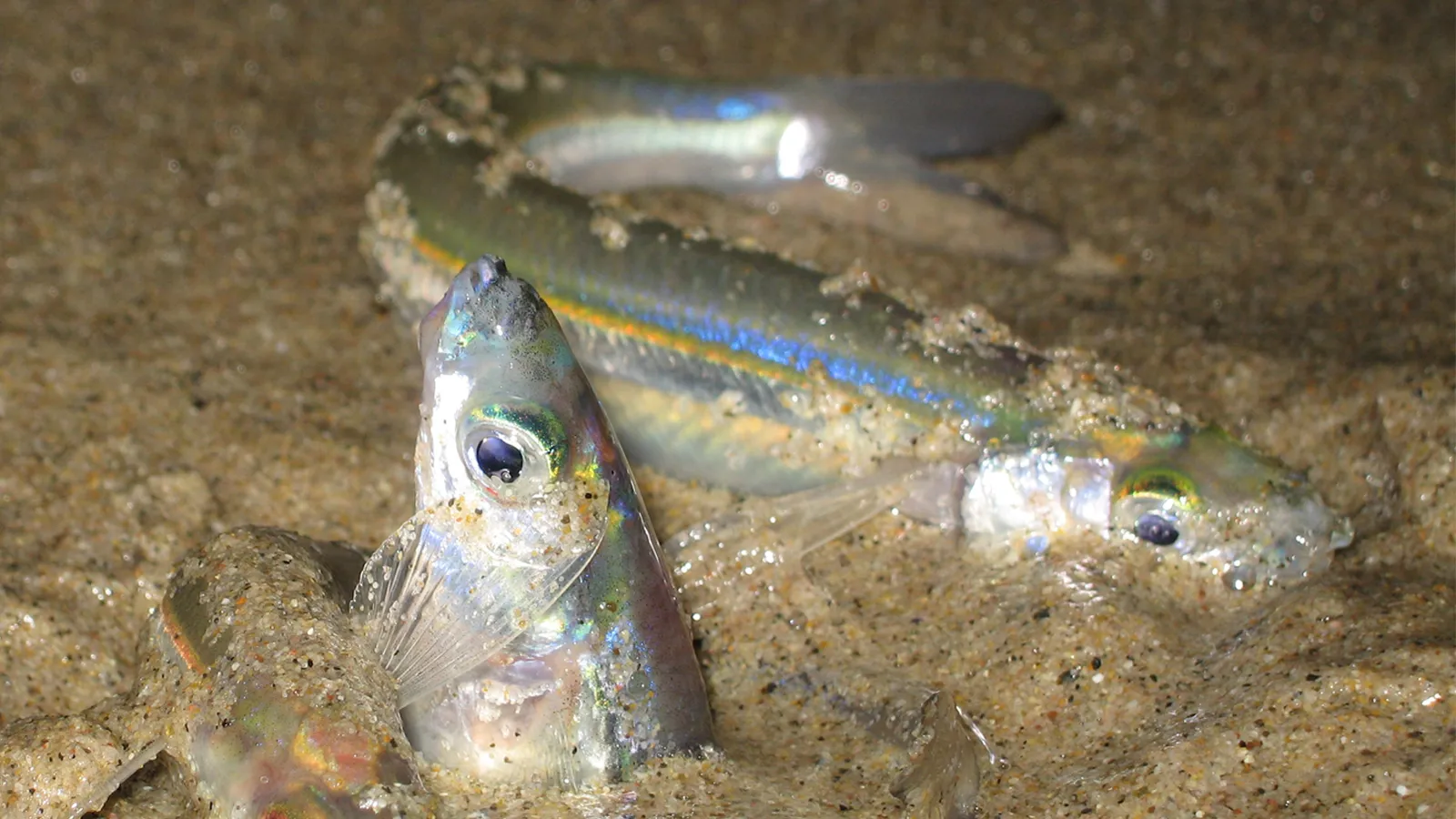
At the heart of understanding these unique creatures is a community-driven initiative led by Karen Martin, a seasoned scientist from Pepperdine University. Since 2002, over 5,000 volunteers, affectionately dubbed "grunion greeters," have played a pivotal role in gathering data about these fish at 50 designated beaches across California. Martin asserts, "We couldn't do it without them. There is no other way for us to get this kind of data. It's pretty remarkable, actually."
These citizen scientists are crucial because grunion, smart and elusive, defy traditional methods of population assessment. They dodge nets, ignore bait, and, as a result, remain somewhat of an enigma in terms of exact numbers. Their conservation status hangs in a precarious balance, underscored by a noticeable decline in their populations over the past decade due to beach erosion, light pollution, coastal development, and the indirect impacts of tourism and local activity.
Regulation and Preservation Efforts
Efforts to protect the grunion have a storied history, with initial regulations dating back to 1927 when the California Department of Fish and Wildlife first observed the grunion's vulnerability during their onshore spawning. The restrictions have evolved from banning certain fishing gear to implementing no-take seasons, extending from April through June, thanks to sustained advocacy and accumulated data from the grunion greeters.
These regulations have become more stringent over the years. For instance, in 2020, the fishing restrictions were further tightened, with limits set on how many grunion one could harvest even outside the no-take season, reflecting the growing concern over their declining numbers.
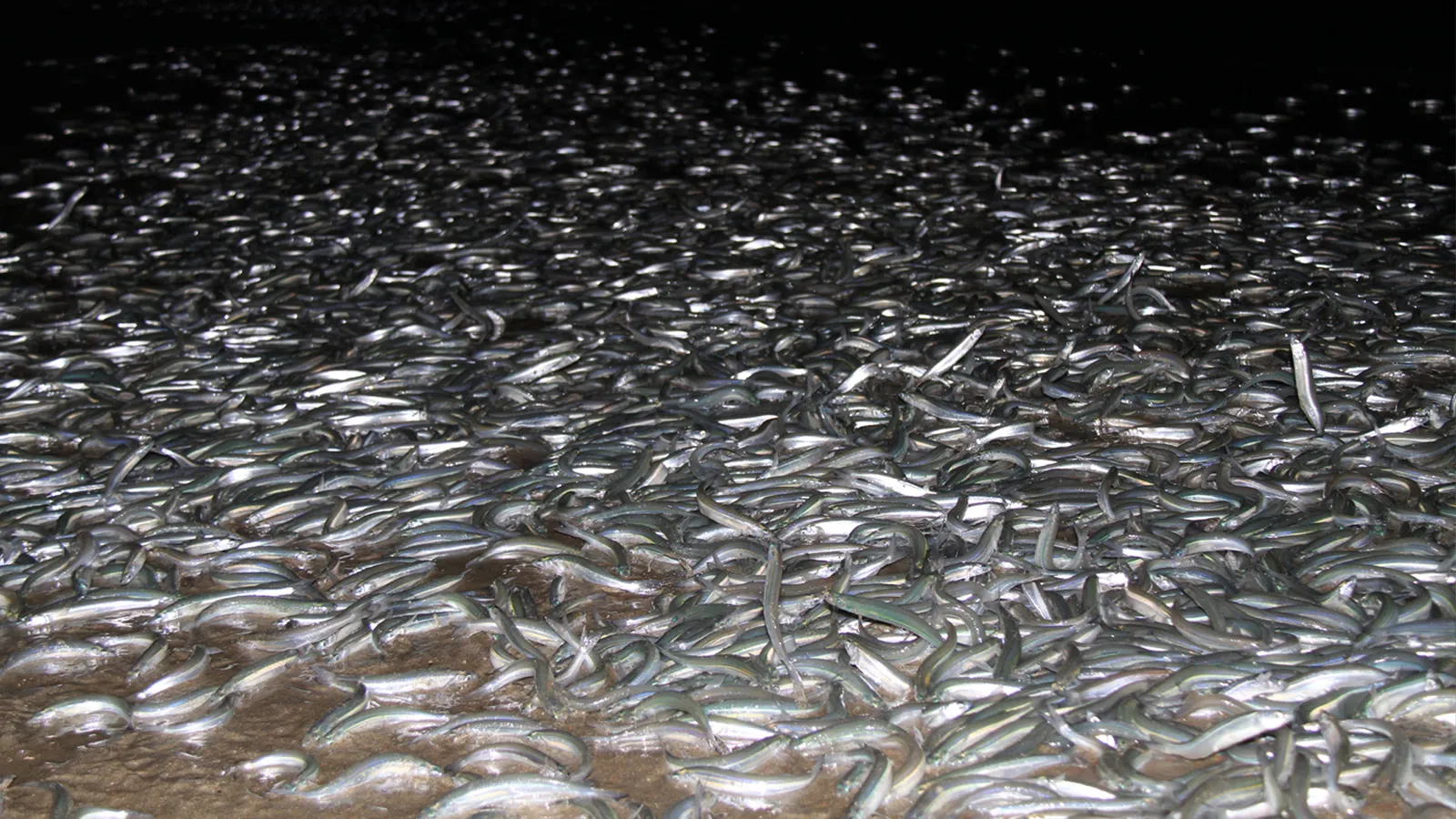
The Ripple Effect of Citizen Science
The data collected by the grunion greeters has not only informed regulatory changes but also fostered a broader awareness and appreciation for these marine creatures. The community's involvement has turned local residents into staunch defenders of the grunion, often educating others about the importance of adherence to the fishing regulations.
Karen Martin reflects on the transformation in perception towards citizen scientists, from skepticism to a valued partnership. "People are excited to know that they've made this sighting and that their knowledge is useful—that somebody cares about what they've seen," she says. This shift signifies a deeper societal connection to local wildlife and ecosystems, proving that community involvement in scientific endeavors can yield substantial environmental stewardship.
A Dance Worth Preserving
The grunion run is more than just a biological curiosity; it's a testament to the intricate ties between lunar cycles, marine life, and human interaction. As Southern California continues to grapple with the challenges of conservation and urban development, the fate of the grunion underscores the broader dialogue about our role in safeguarding not only these spectacular fish but also the delicate balance of the ecosystems they inhabit.
In essence, the dance of the grunion is a call to action—a reminder of the beauty and fragility of nature and our enduring responsibility to protect it. As we look towards the future, the ongoing collaboration between scientists, citizen volunteers, and policymakers will be crucial in ensuring that the grunion runs continue to enchant and educate future generations.
Source: BBC / Cover Image: Karen Martin
Potential ‘Largest Reptile Ever’ Discovered On Family Beach Day
April 22, 2024
Prehistoric Leviathan: Family's Beach Day Leads to Monumental Ichthyosaur Discovery
The serene shores of Somerset, England, are once again at the center of a paleontological breakthrough. A jaw-dropping find—a jawbone over two meters long, belonging to a previously unknown species of ichthyosaur—has the scientific community buzzing with excitement.
Dubbed Ichthyotitan severnensis or "giant fish lizard of the Severn," this marine behemoth is estimated to have been as colossal as a blue whale, stretching over 25 meters long.
A Family Affair: Discovery by Chance
The tale of this remarkable discovery begins with a family outing that turned into a scientific expedition. Ruby Reynolds, a sharp-eyed 11-year-old, and her father, Justin, stumbled upon the first fragments of the giant bone while fossil hunting on the beach at Blue Anchor in May 2020.
Recognizing the significance of their find, they contacted Dr. Dean Lomax, a leading ichthyosaur expert from the University of Bristol. Dr. Lomax, in turn, reached out to Paul de la Salle, who had discovered a similar giant jawbone in 2016.
Together, they unearthed additional pieces, assembling a prehistoric puzzle that would lead to the identification of a new species.
The Significance of the Find
This discovery is not just about adding a new species to the scientific records; it challenges our understanding of marine life in the Triassic period.
The jawbones of Ichthyotitan provide hard evidence of giant ichthyosaurs swimming in the prehistoric oceans about 202 million years ago, just before a global mass extinction event wiped them from existence.
These giants roamed the seas at a time when dinosaurs were beginning to dominate the land, painting a picture of a world vastly different from our own.
The Science Behind the Bones
The research team, which includes experts from the University of Bristol and the University of Bonn, has employed advanced techniques to analyze the fossils.
Marcello Perillo, a master’s student involved in the study, took core samples that confirmed the ichthyosaur origin of the bones and suggested that the creature was still growing at the time of its death.
This hints at unknown biological strategies that may have allowed these giant creatures to reach such massive sizes.
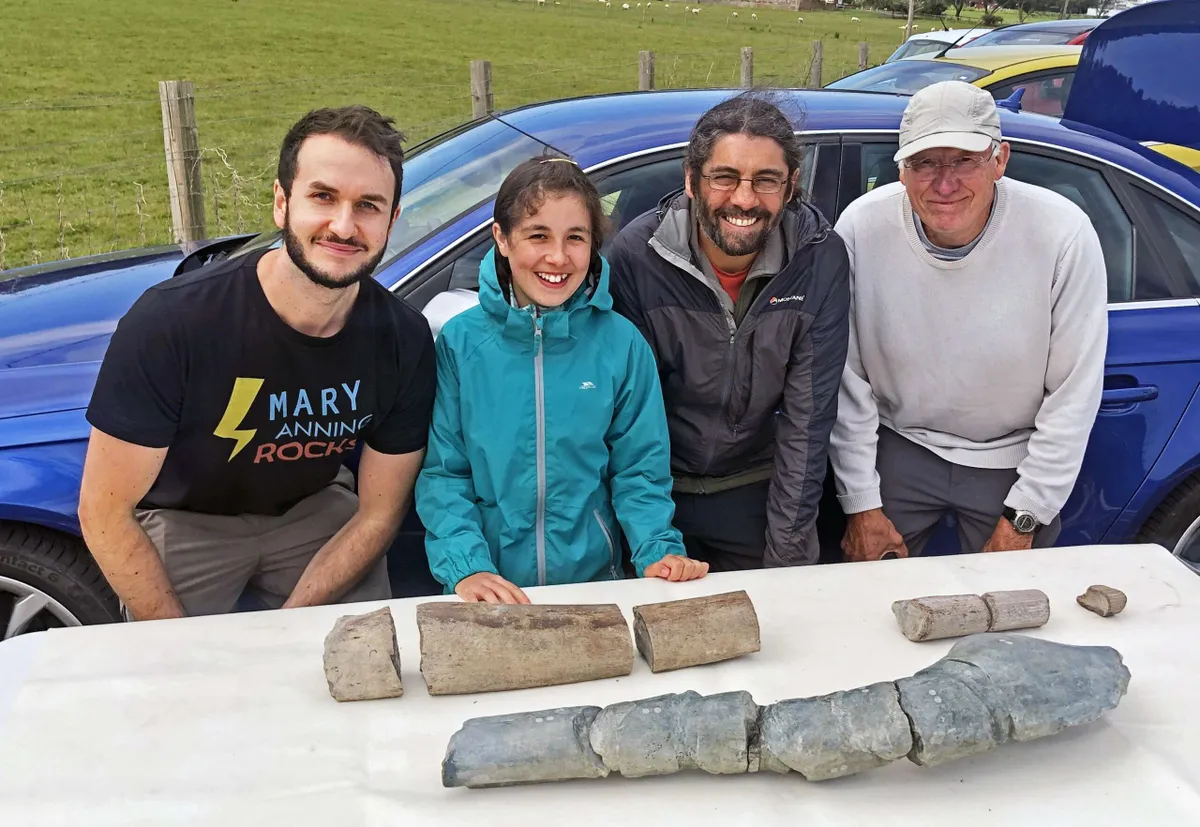
A Community Effort
The discovery of Ichthyotitan severnensis has been a community effort, highlighting the importance of amateur fossil hunters in the field of paleontology. Ruby Reynolds, now a published young scientist, expressed her excitement and pride in contributing to such a significant scientific discovery.
Her story is reminiscent of Mary Anning, the famous fossil collector who made numerous significant contributions to paleontology in the 19th century.
Exhibiting History
The bones of Ichthyotitan are set to be displayed at the Bristol Museum and Art Gallery, bringing the story of these magnificent creatures to the public.
This exhibition will not only showcase the jawbones but also feature scaled 3D replicas, created by Jimmy Waldron of the DWABA museum in Orlando, Florida, allowing people around the world to marvel at the size and scale of these prehistoric giants.
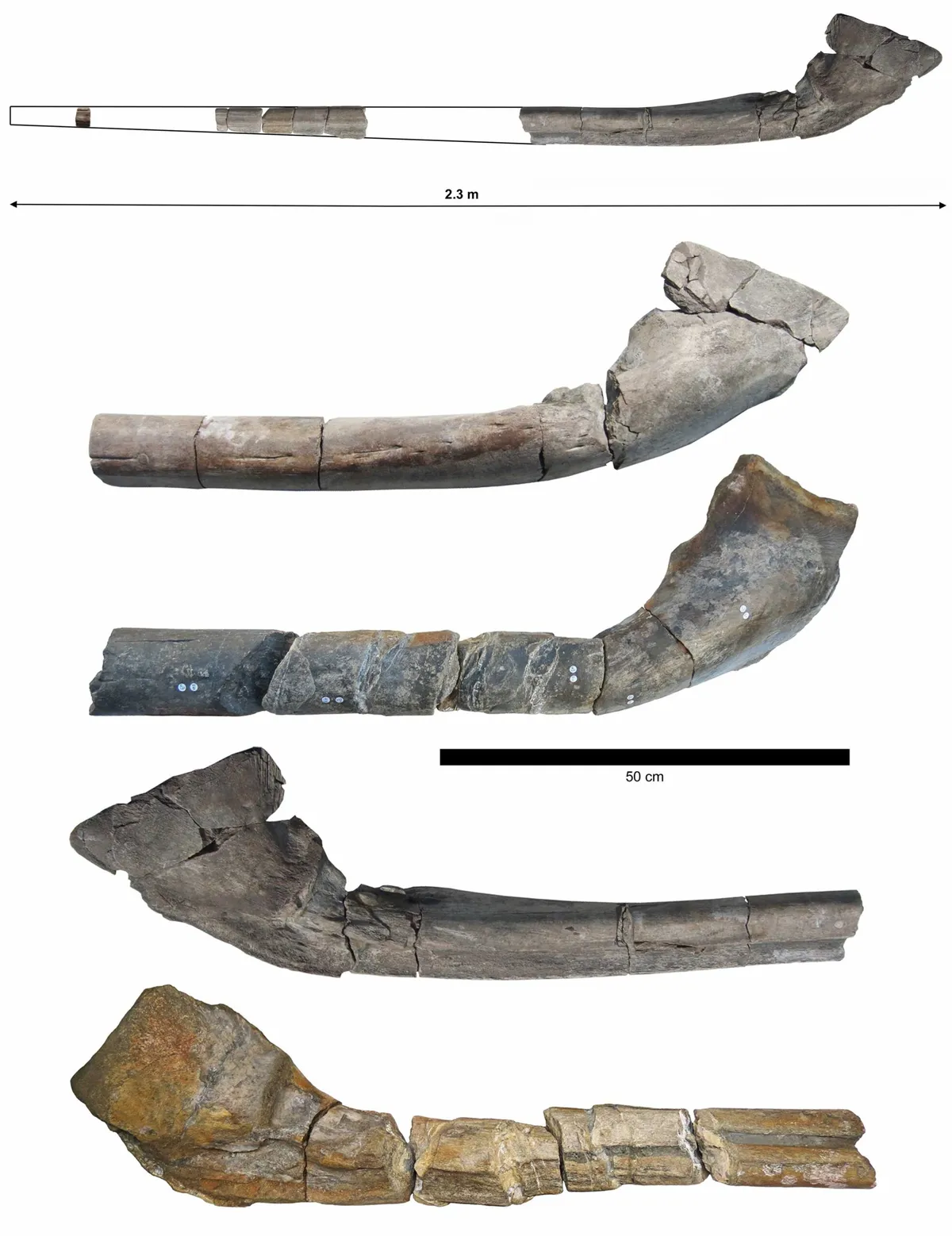
Reflections on a Giant
The story of Ichthyotitan severnensis is more than a tale of discovery. It is a testament to the enduring curiosity of humans, the thrill of discovery, and the never-ending quest to understand our planet's ancient past.
As these giants once dominated the seas, their fossils now beckon us to explore and appreciate the complex history of life on Earth.
It reminds us that each fossil holds a story, a glimpse into an era where the world was a vastly different place, encouraging us to keep looking, learning, and wondering about the great unknown.
Get To Know The Macaw
April 19, 2024
Get to Know the Macaw: Facts, Myths and Photos
Ever marvel at the vibrance of a rainbow? Now, imagine that splashed across a lively creature with a personality as colorful as its feathers. Welcome to the world of macaws, those eye-popping birds that seem to have leaped straight out of a vivid dream into our reality.
These members of the parrot family are not just a feast for the eyes; they're intelligent, social, and full of quirks.
Stick around as we dive deep into what makes macaws truly spectacular—from their flamboyant feathers to their complex social lives. Ready to get up close and personal with nature’s own winged rainbows? Let’s fly right in!

What is the Macaw?
So, what exactly is a macaw? In the simplest terms, it's a type of parrot—a really large, really colorful parrot. But not just any parrot; macaws are like the celebrities of the parrot world, known for their striking colors and impressive size. These birds belong to the family Psittacidae, which includes all parrots, and they're predominantly found in Central and South America. The macaw family is pretty diverse, with about 19 species making up the group. Each species brings its own flair to the macaw lineup, ranging from the giant Hyacinth Macaw, stretching over three feet in length, to the more petite Hahn's macaw, which is just a fraction of the size.
Biologists and bird lovers get geeky about macaws not just because of their looks but because of their brains. These birds are known for their high intelligence and remarkable ability to mimic human speech, which makes them both fascinating and a bit of a handful as pets. They're deeply social creatures, which might explain their complex behaviors and why they seem so attuned to human emotions.
What do Macaws look like?
Imagine a bird that decided to wear the entire spectrum on its wings. Macaws are exactly that—bold and beautiful, with feathers that can make just about anyone’s jaw drop. They sport a range of colors, often vivid blues, reds, and yellows, which can vary widely between species. For instance, the Blue and Gold Macaw has a stunning azure back with a golden underbelly, while the Scarlet Macaw flaunts a brilliant red plumage with blue and yellow highlights.
But macaws aren't just about pretty faces (or feathers, in this case). They have large, curved beaks that seem almost oversized for their faces but are perfect for cracking nuts and seeds. Their beaks are as functional as they are symbolic, representing the adaptability and survival skills of these birds in the wild. Speaking of functionality, let's not overlook their eyes—sharp and penetrating, they reflect a keen intelligence that complements their striking looks.
Visual diversity is key among macaws, with each species having its own unique patterns and color blends. This not only makes them a subject of endless admiration but also an interesting topic for those keen on genetics and the environmental factors that influence avian aesthetics.
How Big are Macaws?
When it comes to size, macaws really stretch the spectrum. These birds are generally recognized as some of the largest members of the parrot family. The smallest species, like the Noble Macaw, might only reach about 12 inches in length, which is pretty petite for a parrot. On the other end of the scale, you've got the majestic Hyacinth Macaw, which can stretch up to 40 inches from beak to tail tip. That’s longer than some dogs!
A key thing to remember with macaws is that their size isn’t just for show. It plays a crucial role in their survival. Larger macaws, with their powerful wings and sturdy bodies, can travel long distances in search of food, mates, or nesting sites, which is essential in the vast habitats they occupy. So, when you see a macaw spreading its wings, it’s not just a beautiful sight—it’s a glimpse into a lifestyle crafted by nature to thrive in the wild.

Macaw Feathers and Colors
Ah, the colors! If there’s one thing you can’t ignore about macaws, it’s their stunning plumage. These birds are the living embodiment of a painter’s palette. Each species flaunts a unique blend of vibrant feathers that aren't just about beauty—they serve some pretty practical purposes too.
For starters, the bright colors help macaws communicate. In the dense rainforests they call home, these colors can be a major advantage for social interactions like attracting mates or warding off rivals. And let's not forget camouflage. Yes, those bright blues and greens can actually blend in well with the lush foliage and shadowy light of the rainforest, helping them stay hidden from predators.
The feather quality of macaws is also top-notch. These are tough, glossy feathers that can withstand the wear and tear of rainforest life. Plus, they’re waterproof, which is handy for a bird that lives in some of the wettest environments on earth.
Macaw Beak
Now, the beak—macaws' multi-tool. It’s not just there to make them look serious; it’s essential for their survival. The strong, curved beak of a macaw is a perfect example of nature’s engineering. It can crack open hard nuts and seeds, which make up a significant part of their diet, and it's delicate enough to handle softer fruits and berries.
But the macaw’s beak is more than just a nutcracker. It’s a climbing aid as well. These birds use their beaks to help them climb and hang from branches, almost like an extra limb. Imagine trying to scale a tree without hands, and you’ll get a sense of how ingenious this adaptation really is.
It’s fascinating to see how macaws use their beaks to interact with their environment, from feeding and climbing to grooming and even playing. Observing a macaw in action, using its beak to explore and manipulate objects, really highlights their curious and intelligent nature.
Macaw Claws
When you think about macaws, their claws might not be the first feature that springs to mind, but these tools are just as crucial as their beaks. Each macaw is equipped with four strong, sharp claws, arranged in a zygodactyl pattern—two toes pointing forward and two backward. This special arrangement is perfect for a lifestyle spent mostly among the trees.
Macaw claws are all about grip. Whether it’s clinging to a vertical tree trunk, hanging upside down to reach a tantalizing fruit, or simply perching securely as they sleep, these claws make it all possible. Their ability to grasp and hold is vital not only for feeding and mobility but also for interacting with other macaws and their environment.

Macaw Tail
The tail of a macaw isn’t just a trailing feather arrangement; it's a critical balance tool and a striking visual display. Long and pointed, macaw tails can often be nearly as long as the rest of their body. In flight, these tails are magnificent rudders, helping the birds steer and maneuver through their dense forest habitats with agility and grace.
On top of their functional importance, macaw tails add to the visual spectacle of the birds. During courtship displays, macaws will fan out their tails, showing off the brilliant colors and patterns to potential mates. The tail feathers, often a different color from the body, add an extra layer of allure to these already captivating creatures.
What Do Macaws Eat?
Diving into a macaw's diet is like exploring a tropical buffet. These birds are primarily herbivores, and they have quite the varied palate. Their diet mainly consists of nuts, fruits, and seeds, which they skillfully extract and consume using their powerful beaks. But macaws are also known to enjoy the occasional leaf, flower, and even insect or small reptile, adding some protein to their colorful diet.
Macaws have a particularly interesting relationship with "clay licks," natural riverbanks where the soil is rich in minerals. These birds will often gather in large numbers to eat the clay, which helps them detoxify any poisonous substances they might have ingested from unripe seeds or toxic fruits. This not only highlights their dietary diversity but also their remarkable adaptability to their environment.
The diet of a macaw can vary widely depending on the species and their natural habitat. For instance, the Scarlet Macaw might have a different dietary preference than the Blue and Gold Macaw, reflecting the ecological diversity of their respective environments.
Macaw Social Structure
Macaws are anything but loners; these birds are the social butterflies of the avian world. Typically, macaws live in flocks that can number from a few pairs to hundreds of birds, especially in popular feeding areas or at clay licks. This social arrangement helps them protect each other from predators and increases their efficiency in finding food.
The structure within a macaw flock is quite sophisticated. While they are communal and cooperative, there’s also a clear hierarchy, often determined by age, size, and temperament. Within the flock, macaws pair off into monogamous relationships that can last a lifetime. These pairs are rarely seen apart, whether they are foraging, flying, or resting. The bond between mated macaws is strong, characterized by mutual grooming and shared food, which helps strengthen their relationship and ensures cooperative parenting.

How do Macaws Reproduce?
Speaking of parenting, let's dive into the reproductive life of macaws. These birds don't start breeding until they are quite mature, often not until they are several years old. Once they form a pair, macaws are monogamous and will typically mate for life, which is a rarity in the animal kingdom.
The breeding season for macaws is usually aligned with the rainy season, when food is most abundant. This timing ensures that there are plenty of resources available for the demanding task of chick rearing. The female lays between two to four eggs per clutch, which she incubates for about 24 to 28 days. During this time, the male takes on the role of the protector and provider, bringing food to the nest and standing guard against any threats.
Macaw nests are typically found high up in the cavities of dead or dying trees. This elevated location helps protect the eggs and young chicks from ground-level predators. Once hatched, the chicks are entirely dependent on their parents for food and protection for up to three months, a period during which the parents are exceptionally attentive and busy.
How Long Do Macaws Live?
Macaws are among the longer-lived bird species, with lifespans that can extend well beyond 50 years in captivity. In the wild, however, their lifespan is usually shorter, often due to environmental pressures, disease, and predation, but it's not uncommon for a macaw to reach 30 to 35 years of age.
The longevity of macaws in captivity highlights the importance of long-term commitment when considering these birds as pets. Their extended lifespan also allows them to form lasting bonds with their human caregivers, often becoming a lifetime companion. The challenge, however, lies in ensuring that they receive appropriate mental and physical stimulation throughout their lives, as boredom and isolation can lead to behavioral issues in these intelligent creatures.
READ NEXT: GET TO KNOW THE AFRICAN FISH EAGLE
Are Macaws Territorial?
Macaws, with their sociable nature, may not seem the type to defend turf aggressively, but they do exhibit territorial behaviors, particularly around their nesting sites. During the breeding season, macaws can become quite protective of the area surrounding their nest. This territoriality ensures that they have enough space and resources to successfully raise their chicks.
Outside of the breeding season, macaws tend to be more gregarious and less concerned with territory, often seen mingling freely with other birds at communal feeding sites or clay licks. This adaptability in their social behavior highlights their intelligence and complex social dynamics, where the need for community often outweighs the instinct for territorial defense.

How Fast are Macaws?
When it comes to speed, macaws are no slouches. These birds are built for flying through the challenging landscapes of dense rainforests or open skies above the canopy. While exact speeds vary by species, macaws can reach flying speeds of up to 35 miles per hour. This swiftness allows them to travel long distances in search of food, mates, or new nesting sites, a necessity in the expansive habitats they occupy.
Macaws use their speed not just for efficient travel but also as a tactic to evade predators. Their agile flight, combined with bright, confusing color patterns, makes them a challenging target for would-be attackers. Additionally, their loud calls, which can be heard over long distances, help keep flock members in contact even when flying at high speeds.
Where do Macaws Live?
Macaws are native to a variety of habitats across Central and South America, with a range that spans from the dense Amazon rainforest to the drier savannah regions. These diverse environments influence the specific adaptations and behaviors of different macaw species. For example, while some macaws, like the Scarlet Macaw, thrive in humid, tropical rainforests, others, such as the Blue-throated Macaw, are found in more arid woodland areas.
The habitat of a macaw affects everything from its diet and social behavior to its reproductive strategies. Rainforest-dwelling macaws often benefit from a constant supply of various fruits and nuts, while those in drier areas might rely more on specific seasonal resources. This ecological diversity is crucial for the survival of different macaw species, allowing them to specialize and thrive in various environmental conditions.
How Many Macaws are There in the Wild?
Estimating the exact number of macaws in the wild can be challenging due to their wide distribution and the often inaccessible nature of their habitats. However, it's clear that the populations of many macaw species are under threat. The primary reasons include habitat loss, illegal pet trade, and environmental degradation. Species like the Spix's Macaw have seen populations plummet to the point of being declared extinct in the wild, only surviving due to intensive conservation and breeding programs.
For species that are still found in the wild, such as the Blue and Gold Macaw or the Scarlet Macaw, conservation efforts are crucial to maintaining their numbers. These efforts include habitat preservation, anti-poaching measures, and education campaigns aimed at local communities and potential pet buyers globally. While some macaw species maintain stable populations in large protected areas, others are rare and face ongoing risks from human activity.

Are Macaws Endangered?
Many macaw species are indeed listed as endangered or threatened by the International Union for Conservation of Nature (IUCN). The varying degrees of threat depend largely on their habitat conditions and the impact of human activity. For instance, the Hyacinth Macaw is considered vulnerable due to its specific habitat needs and the illegal trade of exotic pets.
Conservation status not only highlights the risk these birds face but also the global responsibility to ensure their survival. International cooperation is needed, along with strict enforcement of wildlife trade laws and significant efforts to restore and protect macaw habitats. Thankfully, there are numerous success stories where conservation initiatives have stabilized or even increased macaw populations, showing that with concerted effort, positive change is possible.
Threats to Macaws in the Wild
The beautiful plumage and engaging personalities of macaws that make them so beloved are unfortunately also the reasons they are under threat. The illegal pet trade has a devastating impact on wild populations, as juvenile birds are often captured and sold on the black market. This not only reduces the number of individuals in the wild but also disrupts the social structure of macaw flocks, which can have broader ecological consequences.
Habitat destruction is another significant threat. As forests are cleared for agriculture or mining, macaws lose both their homes and their food sources. Climate change further exacerbates these challenges, altering the ecosystems macaws depend on for survival. Pollution, especially in the form of pesticides and heavy metals, can also poison these birds or their food supplies, leading to decreased fertility and higher mortality rates.
Where to See Macaws
If you're keen on seeing macaws in their natural habitat, there are several destinations where these magnificent birds can still be found flying freely. The Amazon rainforest across countries like Brazil, Peru, and Colombia offers vast tracts of untouched forests that are home to numerous macaw species. National parks and wildlife reserves often provide the best chances of sightings, with guided tours that help spot these colorful birds in the canopy.
Another excellent location is Costa Rica, particularly in areas like Corcovado National Park, where Scarlet Macaws are a common sight. Similarly, the Pantanal in Brazil is known for its large populations of Hyacinth Macaws, especially near conservation areas dedicated to this species. These trips not only offer the chance to see macaws but also support eco-tourism, which plays a crucial role in their conservation.
Tips for Spotting Macaws
Spotting macaws, while exciting, can be challenging due to their often elusive nature and the dense habitats they prefer. Here are some tips to increase your chances of a memorable encounter:
- Early Morning or Late Afternoon: Macaws are most active during these times, making them easier to spot as they feed and socialize.
- Listen for Their Calls: Macaws are noisy creatures. Their loud calls can help you locate them even before they are visible.
- Use Binoculars: A good pair of binoculars is essential to get a clear view of these birds as they often stay high in the treetops.
- Stay Near Fruit Trees: Macaws often visit specific trees that bear fruit, so these spots can be excellent for sightings.
- Be Patient: Like any wildlife spotting, seeing macaws requires patience. They are wild animals with their own routines and timetables.
Facts About the Macaw
- Macaws can eat some toxic seeds and unripe fruits that are harmful to other animals because clay from clay licks helps neutralize the toxins.
- The largest macaw species is the Hyacinth Macaw, which can grow up to 40 inches in length.
- Macaws have a strong sense of community, often seen preening each other, which helps strengthen their social bonds.
- They are known for their incredible memory, which is essential for recalling the locations of fruiting trees throughout their vast territory.
- Macaws can fly up to 35 miles per hour, using their powerful wings to navigate through and above the rainforest canopy.
Myths About the Macaw
- Myth: Macaws can talk like humans. Fact: While they can mimic human speech, they do not understand or communicate in human languages.
- Myth: All macaws are colorful. Fact: While most are vividly colored, some species have more subdued hues to blend into their environments better.
- Myth: Macaws live only in rainforests. Fact: Macaws inhabit a range of environments from rainforests to savannahs, depending on the species.
- Myth: Macaws eat only fruits. Fact: Their diet is diverse, including nuts, seeds, leaves, and occasionally insects and small animals.
Macaws are not just birds; they are a spectacular display of nature's brilliance, with their vivid colors, complex behaviors, and fascinating ecological roles. As we continue to encroach on their habitats, the responsibility to protect these magnificent creatures grows.
By supporting conservation efforts and responsible eco-tourism, we can help ensure that macaws continue to thrive in the wild. Witnessing a macaw in its natural setting is more than just a sighting; it’s an encounter with one of the planet’s most extraordinary creations, reminding us of the beauty and fragility of the world we share.
Hyena Pseudopenis: Why Do Female Spotted Hyenas Have a Fake Penis?
April 19, 2024
The spotted hyena is a creature that's as enigmatic as it is misunderstood. They challenge the very foundations of gender roles in nature.
While these animals often get a bad rap in movies and folklore, they harbor one of the most fascinating biological secrets of the animal kingdom: the female sports what appears to be a penis. Yes, you read that right—a pseudopenis! This article isn't just a dive into one of nature's oddities; it’s an exploration into the evolutionary marvels that drive the complex lives of these fierce creatures.
Why do female hyenas have this unusual organ? What does it mean for their survival and social standing in the wild? In the coming sections, we'll unpack the anatomy of the pseudopenis, explore the theories behind its evolution, and see how it influences everything from mating to social dynamics.
Whether you're a wildlife enthusiast, a curious biologist, or just someone who loves a good nature mystery, stick around. You're about to discover why the female spotted hyena's reproductive anatomy is a game-changer in our understanding of evolutionary biology. Let's demystify the reasons behind the pseudopenis and delve into its implications on the social structure of these captivating animals.
What Exactly is a Pseudopenis?
To understand why female spotted hyenas are so unique, let's first delve into what a pseudopenis actually is. Essentially, it’s an enlarged clitoris that closely resembles the male penis, both in appearance and function.
This organ is capable of erecting and is used by females not only for urination but also for mating and giving birth. Yes, the complexities of hyena birth through such a structure are as challenging as they sound, which naturally raises the question of why such an anatomy exists in the first place.
The pseudopenis is complete with a false scrotum, which is actually the female's enlarged labia fused together. These features are not superficially male; they play an integral role in the female hyena's life, from social interactions to the reproductive process.
The anatomical structure is such that it gives female hyenas a distinctly masculine appearance, blurring the lines of gender roles within the animal kingdom. This phenomenon is not only rare but unique to spotted hyenas, setting them apart in the world of mammals.

READ NEXT: THE 10 DEADLIEST ANIMALS IN AFRICA
The Evolution Behind the Masquerade
Why would evolution favor the development of such a peculiar trait as the pseudopenis in female spotted hyenas? Theories abound, but most revolve around the idea of survival and social advantage. One prevalent theory suggests that high levels of androgen (a type of male hormone) exposure in utero could be responsible. This hormonal influence not only develops the pseudopenis but also contributes to the aggressive nature of female hyenas, giving them a significant edge in their matriarchal societies.
This adaptation could be seen as nature’s way of leveling the playing field. In the harsh environments where hyenas thrive, every member of the clan needs to be tough and competitive to survive. The females, often larger and more dominant than males, control mating and make key decisions for their clans. Their masculinized anatomy might be nature's strategy to ensure that female hyenas hold their own in this aggressive environment, handling both the roles of caregiver and leader effectively.
Moreover, the pseudopenis might serve as a natural deterrent against unwanted mating attempts. Only the most determined and fit males can navigate the complex mating process, which involves careful alignment and cooperation from the female. This ensures that only the strongest genes are passed down to offspring, a critical factor in the harsh reality of their ecosystem.

Reproduction and Mating
The mating rituals of spotted hyenas are as unconventional as their anatomy. To mate, a male hyena must be exceptionally patient and precise, as he has to navigate the female's pseudopenis. This process is not only physically demanding but requires a high level of cooperation from the female, who must invert her pseudopenis to allow copulation—a feat that seems almost acrobatic in nature. This unique mating system naturally complicates reproduction, but it also plays a crucial role in the social structure of hyena clans.
Due to the complexity and difficulty of the mating process, mating opportunities are less frequent and more selective in spotted hyenas than in many other mammals. This selectivity strengthens the social bonds within clans and ensures that only the most adept males reproduce, thereby enhancing the genetic quality of offspring. The female's control over mating further solidifies her dominant role within the clan, enhancing the matriarchal system that characterizes their social structure.
Additionally, the birth process through the pseudopenis presents significant challenges and risks. The birth canal of the pseudopenis is only slightly larger than the cubs she bears, often resulting in a laborious and dangerous delivery. This high-risk birthing process has profound implications for cub survival rates and the overall fitness of the species, influencing everything from individual health to population dynamics.
To lighten the mood in what might otherwise be a heavy read, it's worth noting some humorous yet true myth-busting about hyenas: No, they don't laugh because they find something funny. Their famous "laugh" is actually a form of communication used to express excitement and frustration, often during feeding or when a cub is in distress during the challenging birth process.
This fascinating blend of complex behaviors and biological adaptations makes the spotted hyena a creature as intriguing as it is formidable.

RELATED: THE TOP SAFARI DESTINATIONS IN SOUTHERN AFRICA:
Social Dynamics and Survival
The pseudopenis isn't just a biological curiosity; it's a cornerstone of the social structure in spotted hyena clans. In this matriarchal society, females reign supreme, and their unique anatomy enhances their status and control within the group. The presence of the pseudopenis symbolizes strength and dominance, traits that are crucial for leadership in the competitive savannah.
Female hyenas leverage their anatomical advantage to maintain order and establish their authority. This dominance is visible not only in day-to-day interactions but also in critical moments such as food distribution and conflict resolution. The females' larger size, coupled with their aggressive demeanor (enhanced by higher androgen levels), allows them to monopolize food resources, which is vital for their survival and the nurturing of their cubs.
This dominance extends to reproductive choices as well. By controlling when and with whom they mate, female hyenas influence the genetic direction of their clan, ensuring the continuation of traits that reinforce their matriarchal system. This control over mating and the inherent selection pressure it creates shapes the evolutionary path of their species.
To put this in perspective, consider other matriarchal animal species, like elephants or orcas, where females also lead social groups and make critical decisions that affect the survival of their family units. However, unlike hyenas, their dominance does not stem from such pronounced physical masculinization but from social and intellectual prowess. This comparison not only highlights the uniqueness of the hyena's social structure but also underscores the diversity of matriarchal systems in the animal kingdom.
In the wild world of spotted hyenas, it's not just about being the strongest; it's about being the smartest and most adaptable. Their society challenges our human notions of gender and hierarchy, offering a fresh lens through which to view both animal behavior and evolutionary biology.

Hyenas in the Wild vs. Human Perception
From Lion King to Kingpin
The portrayal of hyenas in popular media, like the sneaky and villainous trio in Disney's The Lion King, starkly contrasts with the complex and nuanced reality of these creatures. This section will dive into how spotted hyenas are viewed in the wild versus how they are often misrepresented in human culture.
In the wild, hyenas are not the cowardly scavengers as frequently depicted; rather, they are skilled hunters with a success rate that rivals that of lions. About 95% of their diet comes from their own hunting efforts, showcasing their prowess as top predators rather than mere opportunists. This misalignment between perception and reality extends beyond just their role in the ecosystem—it affects conservation efforts and our understanding of their true nature.
The spotted hyena's intelligence is another aspect that is often overlooked. They possess complex communication skills and demonstrate problem-solving abilities that are comparable to some primates. Their social interactions are intricate, with a clear structure and hierarchy that ensures group survival. This intelligence, however, is rarely highlighted in the tales told about them.
To further debunk myths and shift narratives, it's important to recommend resources that offer a more accurate depiction of hyenas. Documentaries, scientific publications, and wildlife blogs can provide insights into the real lives of these fascinating animals, promoting a better understanding and appreciation.
Conservation and Future Research
The unique reproductive anatomy and complex social structure of the spotted hyena are not just fascinating biological phenomena—they also underscore the importance of conservation efforts for this often-misunderstood species. As we delve into the needs for protecting these remarkable creatures, it becomes evident that conservation is not just about preserving an animal; it’s about maintaining the ecological balance they help uphold.
Spotted hyenas play a crucial role in their ecosystems as both predators and scavengers, helping control prey populations and clean up carcasses that could spread disease. However, they face threats from habitat loss, human-wildlife conflict, and misconceptions that lead to negative attitudes and policies. Conservation efforts need to focus on habitat preservation, conflict mitigation strategies, and education programs that shift public perception and increase ecological awareness.
Future research into hyena biology and behavior can also provide insights that enhance our conservation strategies. Understanding how hyenas adapt to changing environments, how their social structures evolve with shifts in their ecosystems, and the potential effects of climate change on their survival can inform more effective conservation practices. Additionally, studying their unique reproductive system may offer broader biological insights that could have implications for other species and even human medicine.
In closing, the conservation of spotted hyenas is a compelling chapter in the broader narrative of wildlife protection. By safeguarding these animals, we not only preserve an essential link in the African savannah but also protect a living library of evolutionary innovation and resilience. Encouraging reader engagement through support for wildlife conservation initiatives or participation in community-based protection programs can make a tangible difference in the lives of these fascinating animals and the health of our planet.
This article aims not only to educate but also to inspire action, fostering a connection between our readers and the wild world of the spotted hyena. Through understanding, respect, and proactive involvement, we can ensure that future generations will also be able to witness the incredible survival story of the spotted hyenas.






